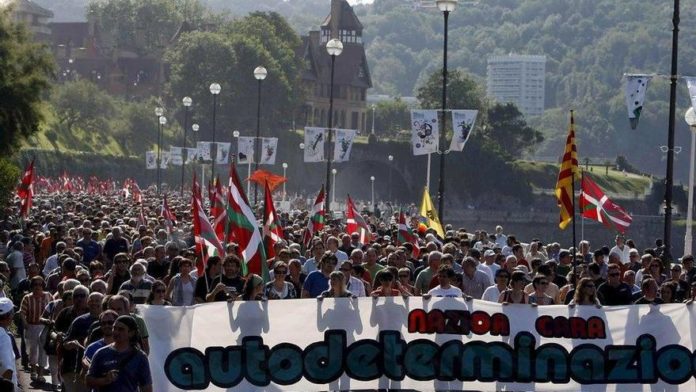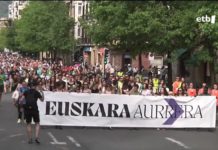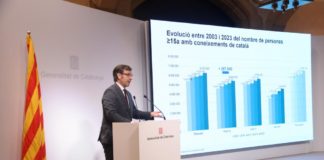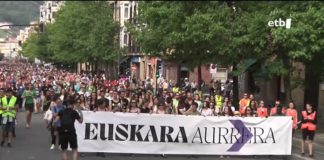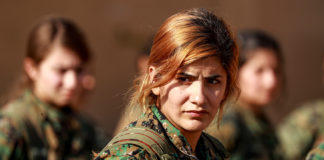Unfortunately, political culture is not very common among the Basques. Not even among Basque nationalists. As a result, we often use basic political concepts incorrectly, and in doing so we always come out losers in the ideological confrontation.
We want to gather some political concepts in this dictionary so that not to get entangled in ideological discussions. It is not our intention to write a political treatise, but to give brief and precise definitions.
In order for the Basque Country to achieve its freedom we need to develop our own robust perspective of the world, since we cannot win the dialectical confrontation if we accept the enemy’s mental framework and its associated terminology.
Lately the idea of a non-nationalist independentism is spreading among us. This harmful discourse has as its exclusive aims material prosperity and the improvement of the organs of government, while accepting Spanish and French as natural languages of the Basque Country (Euskal Herria), at the same level as the Basque language. It also marginalizes the defense of our historical rights and the defense of the survival of our nation.
This denationalizing discourse often uses beautiful words, totally manipulated, to extend the dominant discourse. Therefore, it is convenient to know the precise meaning of the words, to expose the deceit.
Moreover, national claims demand a solid discourse, and for this a clear, constructive and liberating dictionary is necessary. Because words are, precisely, fundamental tools for our liberation.
The established power is ultimately the one that fixes the meaning of words.
-“When I use a word,” Humpty Dumpty said in rather a scornful tone, “it means just what I choose it to mean, neither more nor less.”
– “The question is,” said Alice, “whether you can make words mean so many different things.”
-“The question is,” said Humpty Dumpty, “which is to be master, that’s all.”
(Through the Looking-Glass, and What Alice Found There, Lewis Carroll)
Note: This dictionary is not alphabetically ordered in English, but in Basque language.
HOMELAND: Nation. Ours, Euskal Herria (the Basque Country)
PATRIOT: The one who loves and cares for their homeland and its own features (language, culture, personality…). In addition, they who seek the sovereignty of their homeland.
NON-PATRIOT INDEPENDENTISM: A fraudulent concept similar to that of non-alcoholic whisky. The ideology of those who say that independence is only useful for a more comfortable life. They forget that independence is a question of national dignity, which goes beyond filling one’s pocket. In our case, it is the only way to guarantee the survival of the Basque nation and prevent its assimilation. Patriotism has always and everywhere been the most effective driving force of all pro-independence processes.
ASSIMILATION: The process that a nation undergoes so that it forgets its own features and accepts those of the dominant nation. In the process, it loses its language, its culture, its values and its memory, until it dissolves into another national community.
SELF-DETERMINATION RIGHT: The right of all Peoples or Nations to freely decide their political status, which is included in the international legal order.
PEACE: This concept goes beyond the simple “absence of war or violence”, as it has a deep connection with human and collective rights. Without justice there is no peace, just as there is no peace with war or violence.
FLAG: According to the citizens of the oppressor state, “a piece of rag”, when it is that of the dominated nation. When it is their own, on the other hand, “the supreme symbol of the values of the homeland”.
EQUALITY: Basic principle of democracy, based on the right of all citizens to be treated equally before the law. In democracy all citizens have the same rights and duties.
In the Basque Country we Basques are obliged to know Spanish/French, but the Spaniards/French living among us do not have to know Basque.
SYMBOLIC VIOLENCE: The kind that appears in the relationship between dominant and dominated. Although there is no physical violence, but rather invisible or subliminal violence, it achieves the same objectives. Often the dominant is not aware of it, and the dominated accepts it as a matter of course. This is the violence we Basque speakers suffer when we we are obliged to speak Spanish (or French).
COEXISTENCE: To abandon the Basque language and live through Spanish/French, so as not to trouble non-Basque speakers. To give in without complaint to the imposition of those who do not speak our language.
SOVEREIGNTY: Not be under the domination of any other People. In the case of the Basque Country, not to be under the domination of Spain or France. Independence.
CIVIL DISOBEDIENCE: Widespread and non-violent popular response that challenges the legitimacy and authority of a state. In our geo-political context, the best tool to carry a national liberation process to its conclusion.
DIGLOSSIA: Linguistic imbalance in dominated nations between the indigenous language and the foreign language. Among these Peoples, the autochthonous language, which often lacks official status, is used only for the lowest functions, while the language of the colonisers takes over all formal spheres (higher education, culture, administration, social prestige…).
Although the situation of the Basque language has been diglossical for many years, our language is currently in the process of being replaced, on the way to disappearing, if we Basques do not prevent that occurring.
BILINGUISM: A linguistic phenomenon referring to individuals, not to national communities. It is common in subjugated nations, but not in oppressor nations. Bilingualism is a transitory stage that evolves towards the disappearance of the minority language.
Many of those in favour of bilingualism actually want to tell us this: “You have to be bilingual because I am not willing to be so. Therefore, if you want to talk to me, you have to do it in my language“.
PUBLIC SCHOOL: That of the State. That which in one way or another is controlled and managed by the State. As long as the Basque Country is not independent, there will be no Basque Public School.
BASQUE NATIONAL SCHOOL: The institution that guarantees a Basque education, the one that imparts universal knowledge and values in the Basque language, the one that uses a Basque curriculum and the one that has a Basque national dimension; the one that produces cultured Basque citizens.
COLLECTIVE RIGHTS: Rights pertaining to human groups and national communities. The first of these rights to be recognised was the right to self-determination, and from this the concept of collective rights developed. The state that denies the existence of national communities, of course, never recognises collective rights.
STATE CONSTRUCTION: The process of institutionalising a nation. The transition from nation-building to state-building is based on the articulation of processes and strategies. From the moment that national awareness is strengthened, the nation realises that it needs a state to address its needs more effectively, so it tries to institutionalise its socio-political and economic reality.
ETHNIC GROUP: A set of individuals of the same language and culture
ETHNOCIDE: The process of destruction of an ethnic group. Ethnicities do not disappear by chance; states destroy them in order to carry out their assimilationist policies. Ethnocide is a type of genocide in which instead of killing those who are “different”, their cultures are murdered.
The second part of this article, here: https://www.naziogintza.eus/en/political-dictionary-of-naziogintza-part-2/

